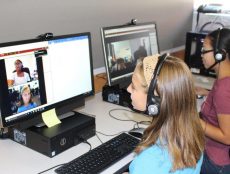
The field of engineering has long been a pillar of innovation and technological advancement for decades now. However, there is this gender disparity that seems to persist, which makes women underrepresented in many engineering disciplines.
As of 2019, women make up 34% of STEM workers in the U.S., according to the Science and Engineering Indicators report (2022). Thankfully, there are online masters in electrical and computer engineering that holds promise by offering a pathway for women to strive in the field of electrical and computer engineering.
The Current Landscape of Women in Engineering
In the pursuit of gender equality, it’s important to assess the current state of affairs regarding the representation of women in engineering, specifically in the domain of electrical and computer engineering, before actually offering any solutions. While some progress has been made more or less over the years, unfortunately, the gender gap still remains a persistent challenge within the field.
The lack of gender diversity in engineering not only severely limits the potential talent pool for the companies but also hinders the development of innovative solutions and doesn’t offer any diverse perspectives.
Recognizing and acknowledging these obstacles is an important first step toward effecting change. By shedding light on the current landscape of women in engineering, the areas that require attention can be identified with certainty and the companies can implement initiatives that promote equal opportunities.
Online Master’s Programs
Online master’s programs are here to offer a truly transformative chance for all women seeking to pursue careers in engineering – particularly in the dynamic fields of electrical and computer engineering. These innovative programs empower women to overcome the barriers they often face in pursuing advanced degrees. So, here are some of the advantages of these programs:
Flexibility
Women, who often juggle multiple responsibilities and commitments, can now pursue their educational goals without sacrificing their personal or professional lives. Online programs offer asynchronous learning which allows all students to access course materials and lectures whenever they want to. T
his flexibility enables women to create a study schedule that aligns with their unique circumstances, whether it be balancing work, family, or some other important commitments.
Accessibility
Geographic location or physical limitations are no longer barriers to education. Women from different parts of the world can now access top-tier programs and learn without the need for relocation. The elimination of these geographical constraints not only broadens educational opportunities by far but also creates a much more diverse and inclusive learning environment.
Supportive Learning Environment
Through communication tools and platforms, students can actively engage with professors and peers, collaborate on projects, and participate in discussions, as they would normally do in real life. Also, many online programs offer dedicated support services, including:
- Online tutoring.
- Academic advising.
- Career counseling.
These resources play a vital role in empowering women and helping them reach their fullest potential throughout their educational journey.
Practical Experiences
While physical labs may not be accessible, virtual simulations and remote experimentation are there to enable students to apply their theoretical knowledge to practical scenarios. This combination of theoretical and practical learning equips women with all the necessary skills and confidence they will need to excel in the field of electrical and computer engineering.
Closing the Gender Gap – Future Implications and Challenges
As the world strives for gender equality in engineering, closing the gender gap in electrical and computer engineering holds significant implications for the field’s future overall. While online master’s programs have emerged as catalysts for a true change, there will always be some challenges that must be addressed if the world really wants to create a more inclusive and diverse engineering landscape.
Closing the gender gap in electrical and computer engineering has far-reaching implications for the future. It is the collective responsibility of educational institutions, industry leaders, policymakers, and even society as a whole to promote and challenge gender biases and provide opportunities for women to thrive in the field.
Featured image credit: coffeekai, iStock.
If you liked this article, try out Using Instagram Live as a Teacher.









No Comments